Decarbonising technologies for cities: Warsaw case study
Published on 15th March 2022
New research | Commissioned by Osborne Clarke | Written by Economist Impact
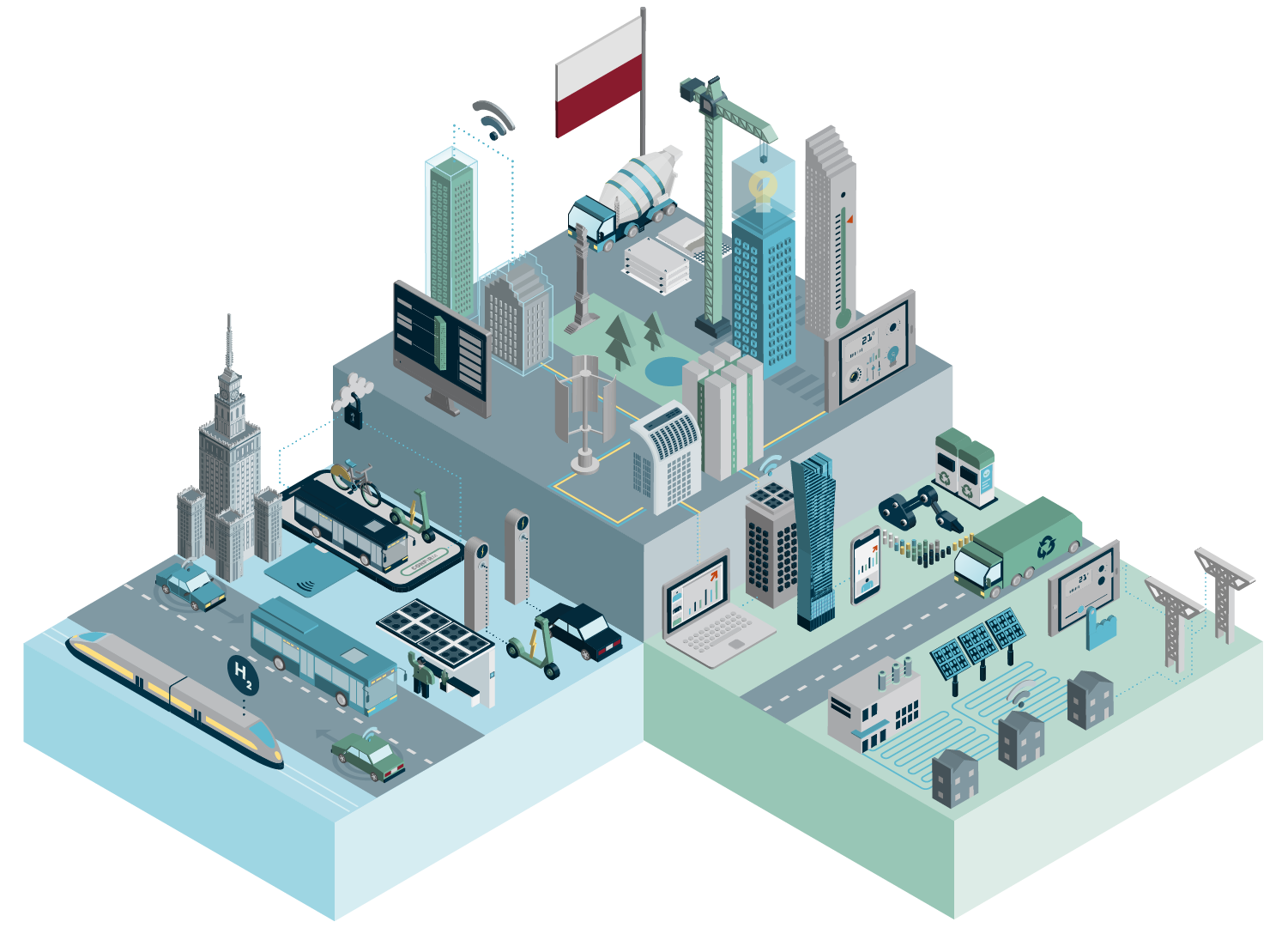
| Download the full case study > |
Overview
Warsaw has joined the Race to Zero campaign to achieve net-zero carbon emissions by 2050 at the latest. It is also about to publish a new Climate Action Plan targeting a 40% reduction in emissions by 2030 compared with 2007.
Several green technologies are already in use, including some of the 12 identified in Economist Impact research, supported by Osborne Clarke and outlined in the report – Sustainable disruption: 12 decarbonising technologies for cities.
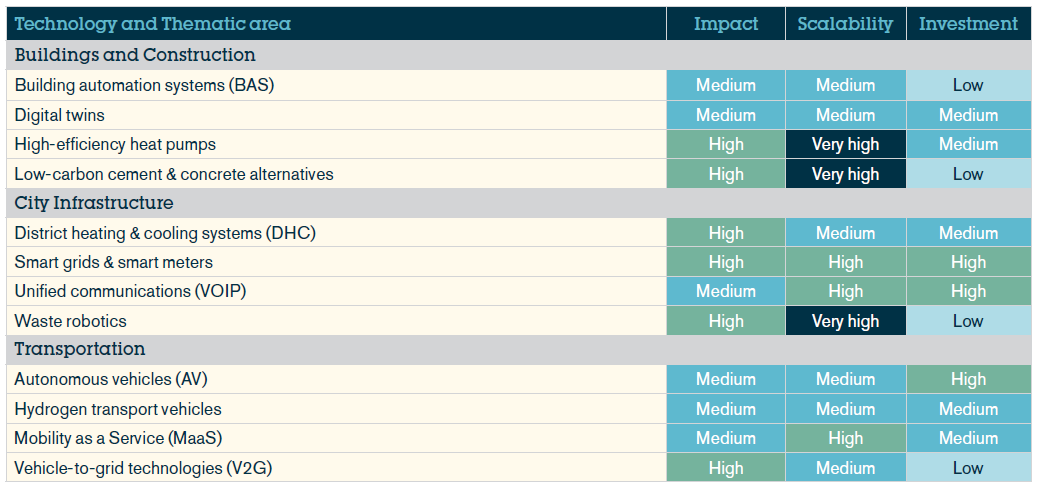
The largest barrier is the city’s dependence on coal and gas for its energy supply.
Key barriers to decarbonising the city include the costs involved in retrofitting buildings, and national policies that have curbed investments in land-based wind farms and photovoltaics, says Jacek Kisiel, Warsaw city’s deputy director of air and climate. But perhaps the largest barrier is the city’s dependence on coal and gas for its energy supply, he adds. Coal accounts for more than 80% of Poland’s primary energy supply and the economy remains among the least energy-efficient in the EU, says the European Bank for Reconstruction and Development.
Osborne Clarke view
| 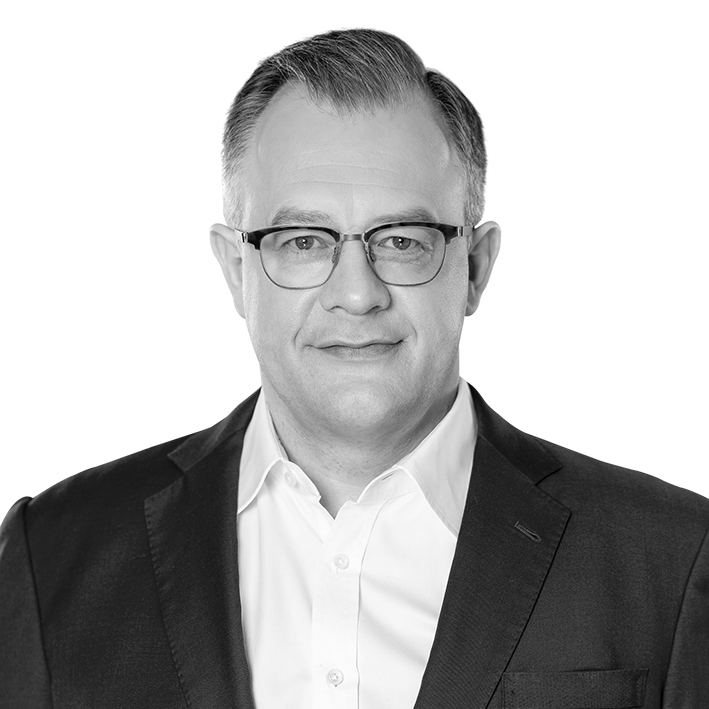
Tomasz Olkiewicz Co-Managing Partner of Osborne Clarke in Poland |
Buildings and city infrastructure
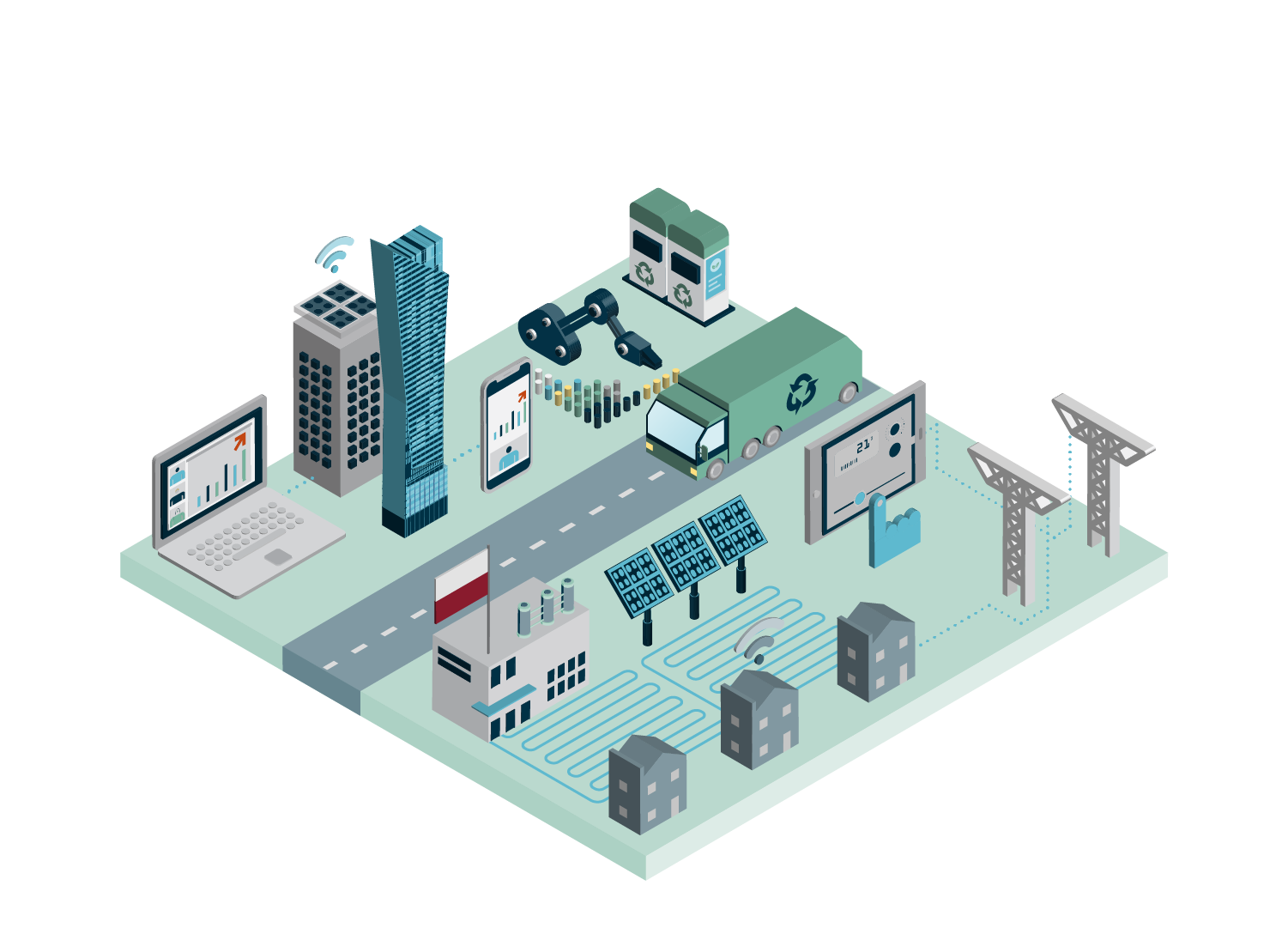
Warsaw has a legacy of district heating systems that have been in place for decades. Economist Impact's Sustainable disruption report identified district heating as an important technology for decarbonisation, but in Warsaw’s case it is currently a major barrier.
The city cannot reach net zero before the 2040s because its two combined heat and power (CHP) plants – which supply heat to 80% of the city's buildings and account for 45% of the city's electricity consumption – run on fossil fuels, explains Mr Kisiel.
One of the plants has just switched from coal to gas, and the second will follow soon. There is currently not enough renewable energy to run them – and they will not be replaced until the 2040s, adds Mr Kisiel.
Poland has embraced digital technologies in all its sectors, including the construction and building sector.
By contrast, Poland has embraced digital technologies in all its sectors, including the construction and building sector. For example, Building Automation Systems (BAS) – another technology flagged in the Sustainable disruption report – are widely used, says Dariusz Lewandowski, CEO of the Aria investment fund.
The city is introducing new green building standards later this year, making the use of a building management system, heat pumps and photovoltaics compulsory in all new public buildings. The City Council cannot, however, impose these standards on the private sector.
The city offers subsidies for heat pumps and photovoltaics, and these are becoming popular with individual homeowners, says Mr Kisiel.
According to Mr Lewandowski, who is also CEO of a construction company that uses energy-efficient materials, the majority of their clients ask for heat pumps to be installed.
With regard to unified communications technology, Mr Lewandowski confirmed that, in general, technologies that enable people to work from home are popular, especially since the start of the pandemic, he explains.
Poland has also improved its waste processing systems in the past 10 years, but still lags far behind EU averages for recycling and composting.
In Warsaw, a lack of legal clarity and detailed plans showing where new waste processing plants can be built have discouraged some private investors from investing in this sector, explains Mr Lewandowski.
Transport
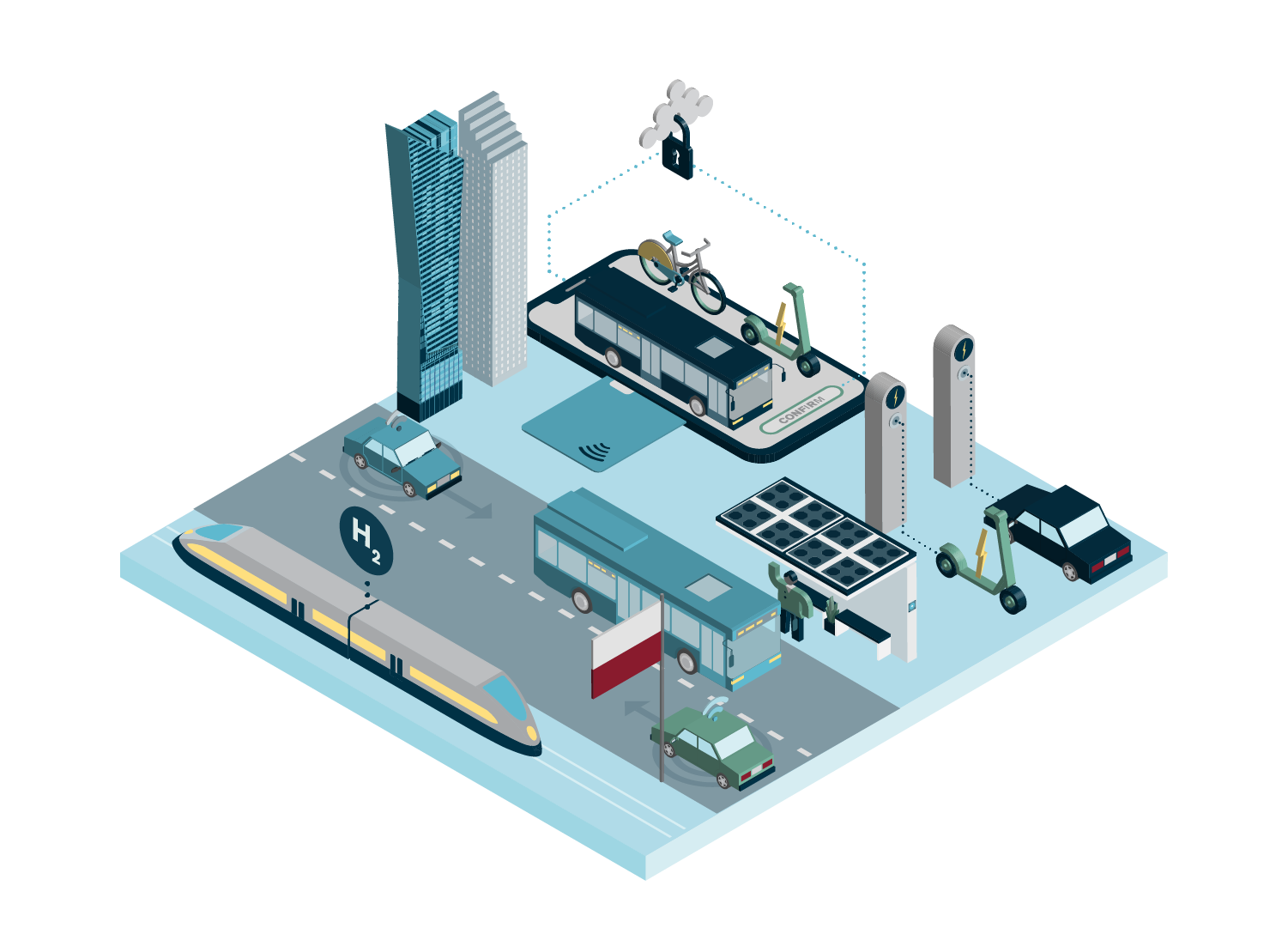
Like many cities, Warsaw suffers from traffic congestion, poor air quality and a shortage of parking spaces.
Mobility as a Service (MaaS) is one possible solution to these problems, reveals Jana Pieriegud, professor at the SGH Warsaw School of Economics and an economist specialising in transport.
MaaS technology is available in Warsaw on platforms created by Vooom and Take&Drive. These are at a very early stage of commercialisation.
MaaS technology is available in Warsaw on platforms created by Vooom and Take&Drive. These are at a very early stage of commercialisation, explains Dr Pieriegud.
Several companies offer car sharing, taxi hailing and scooter sharing apps, which are all popular, adds Dr Pieriegud.
However, these companies do not yet want to fully integrate onto a MaaS platform. This means people can plan their journeys on Vooom comparing options and costs. But to book their journey, users must then switch to the chosen company's application.
It will take several years for companies to cooperate more closely rather than competing with each other, according to Dr Pieriegud.
“The MaaS model requires full cooperation and openness in access to sensitive data between entities providing transport services in a given region. However, the user's decision about the choice of means of transport remains crucial”, explains Dr Pieriegud.
Lack of cooperation between new mobility providers is not the only barrier to MaaS. Many people in Warsaw are unaware of the Vooom and Take&Drive platforms, or their benefits. And “there is no significant public support for MaaS in Poland”, Dr Pieriegud says.
Many inhabitants strongly believe in private car ownership, and the public transport system needs improving, she adds.
| 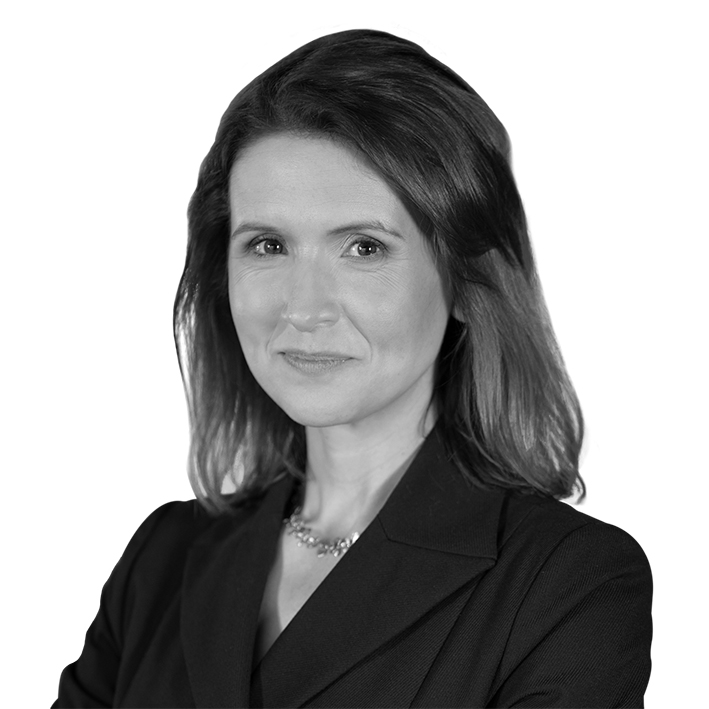
|
Public transport within the city walls is strong and, alongside walking, accounts for half of all journeys, according to Tamas Dombi, director of the city’s traffic management department. However, transport links need improving beyond the city walls to other districts, he adds. Warsaw has a long history of electric-powered transport – electric trams were introduced in 1908, and the city built a system of trolley buses after World War II. The trolley buses were eventually removed
more than 20 years ago, but the tram system has been expanded and a new metro system built.
The city’s diesel buses are gradually being replaced with electric buses. More than 160 operate in Warsaw, about 11% of the total bus fleet. Warsaw’s government has also been encouraging the use of private electric vehicles (EVs)—they can be used in bus lanes and park for free, for example, Dr Pieriegud says.
Although Warsaw is moving to EVs, much of its electricity still comes from coal. “Even if we have EVs, we can’t say we are green. We need significant change in the energy system first,” says Dr Pieriegud.
The city has not yet adopted vehicle to grid (V2G) technologies, although there are a few research, development and innovation projects around this, she explains.
Some international car companies have developed prototypes for Autonomous Vehicles (AVs), but they are not yet permitted in Warsaw as there is no legal framework to regulate their use and the technology requires more funding. Like many other cities, Warsaw has concerns over their safety, especially when used in mixed traffic alongside cars with drivers, Dr Pieriegud explains. Overall though the push is to integrate energy and transport with information and communications technology (ICT), she adds.
| 
|
Hydrogen buses are not yet in regular use in Poland, but the Council of Ministers (cabinet) has adopted a national strategy to develop the fuel. The government aims to build 32 hydrogen filling stations and have between 100 and 250 hydrogen buses nationally by 2025. Private investors are also operating in this area. A new hydrogen refuelling station was established by a private investor in Warsaw in January 2022. The station will supply hydrogen car fleet of the Plus mobile network operator.
| 
|
Funding

Decarbonisation needs a massive budget, especially for the costs of retrofitting buildings and changing energy sources, according to Agnieszka Liszka-Dobrowolska, CEO of Climate Strategies Poland.
Warsaw’s Climate Action Plan and Green City Action Plan (GCAP) are being developed as part of EBRD Green Cities. They will be jointly funded by the TaiwanBusiness–EBRD Technical Cooperation Fund and the Government of Poland.
EU funds have also been used to support some local government projects. For example, Warsaw has used money from the EU funds for the development of low-emission transport to create bicycle lanes, electric charging points for EVs, and buy electric buses, says Dr Pieriegud.
The next stage will probably involve investing in hydrogen vehicles and fuelling stations, she adds.
And a new national fund for environmental protection includes calls for public transport development. For Dr Pieriegud, “now is a time for local authorities to decide what decarbonising technologies to choose for the urban mobility of the future".
Warsaw also recently established a Green Fund to encourage private investors in greening the city, including planting new trees or improving street infrastructure. It is also promoting public-private partnerships and Energy Saving Company (ESCO) financing for energy efficient modernisation of city buildings such as schools. Funding is not the only challenge, however. Cities also lack enough experts who can walk city councils through the changes needed to decarbonise. These include experts who follow the innovation space and technologies on the market, says Dr Liszka-Dobrowolska.
It is very important to choose innovations that respond to specific city needs, and implement the innovation that makes the most difference. A vital step is for the city to map its needs in detail, according to Dr Liszka-Dobrowolska.
Other challenges for Warsaw include energy poverty, a high level of private car ownership and a public transport system that needs more development, adds Dr Liszka-Dobrowolska.
Although Warsaw is still at an early stage of climate action, compared with some other European capitals it is a leading city in Poland and its municipal chiefs have "enormous" interest in climate action. For Dr Liszka-Dobrowolska, “patience, determination, money and knowledge” are needed to overcome the challenges on the path to decarbonisation.
| 
Tomasz Olkiewicz Co-Managing Partner of Osborne Clarke in Poland |
About
Economist Impact
Economist Impact combines the rigour of a think-tank with the creativity of a media brand to engage a globally influential audience. We believe that evidence-based insights can open debate, broaden perspectives and catalyse progress. The services offered by Economist Impact previously existed within The Economist Group as separate entities, including EIU Thought Leadership, EIU Public Policy, Economist Events, El Studios and SignalNoise. Our track record spans 75 years across 205 countries. Along with creative storytelling, events expertise, design-thinking solutions and market-leading media products, we produce framework design, benchmarking, economic and social impact analysis, forecasting and scenario modelling, making Economist Impact's offering unique in the marketplace.
- Find out more >
Osborne Clarke
Osborne Clarke is a future-focused international legal practice, with 300+ partners and more than 1,080 talented lawyers working together across 26 offices around the world. Our three-dimensional approach to client service combines legal expertise, in-depth understanding of our clients and the sectors they operate in, together with insight into the global issues that are transforming the landscape of how we live, work and do business: decarbonisation, digitalisation and urban dynamics. Looking around corners to help our clients solve legal and business challenges, big and small, and harness the opportunities of change – together we’ll be ready for what’s next.
Our thanks are due to the following people for their time and insights:
- Jacek Kisiel, Warsaw city's deputy director of air and climate
- Dariusz Lewandowski, CEO of the Aria investment fund
- Dr Jana Pieriegud, professor at the SGH Warsaw School of Economics and an economist specialising in transport
- Tamas Dombi, director of Warsaw's traffic management department
- Dr Agnieszka Liszka-Dobrowolska, CEO of Climate Strategies Poland





